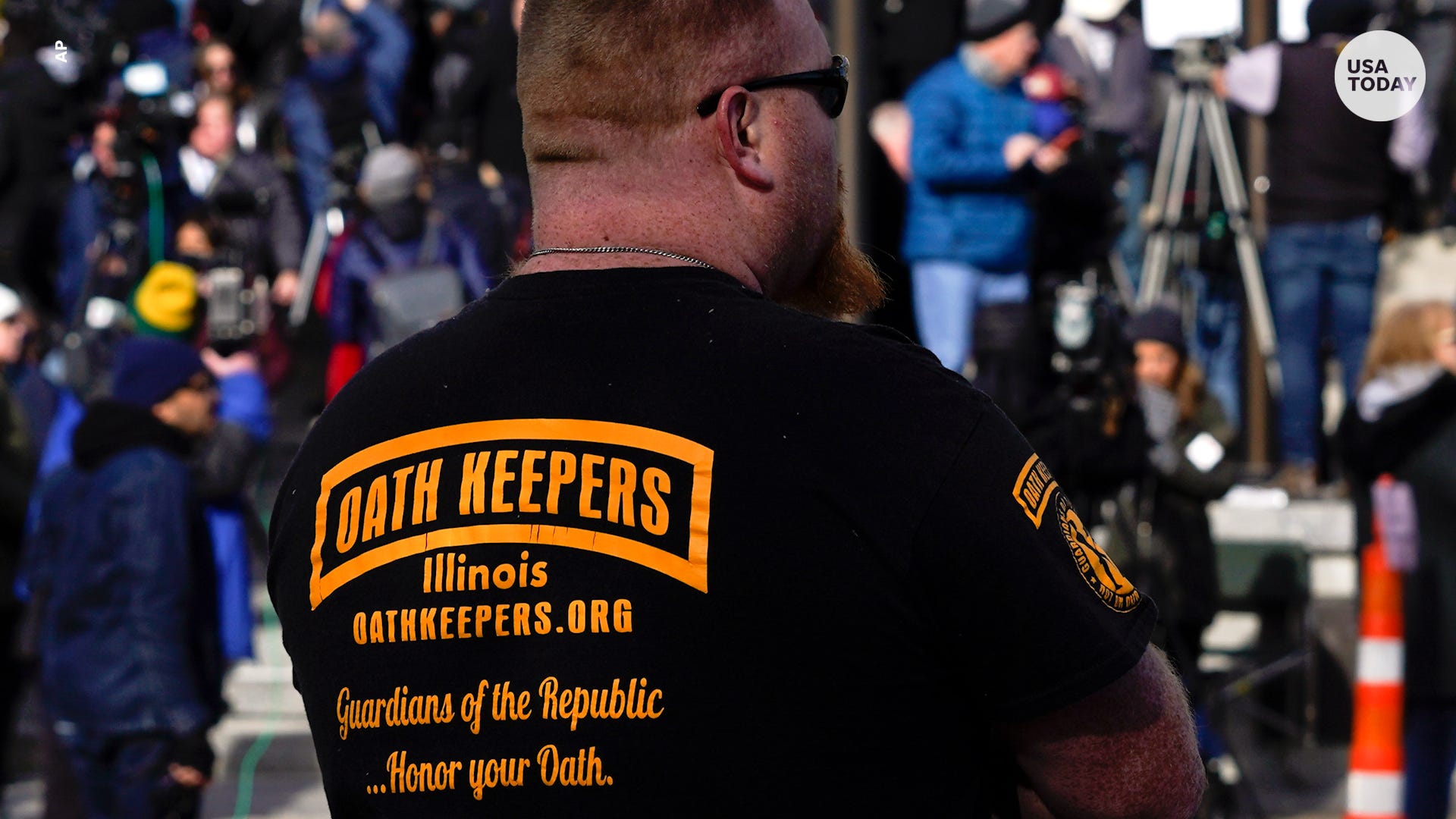Oath Keeper admits Jan. 6 was 'stupid'; Kari Lake refuses to admit defeat after losing election
This week in extremism, from Paste BN

A high-ranking member of the extremist group the Oath Keepers told a court this week she was "stupid" for invading the Capitol on Jan. 6.
Meanwhile, a Senate homeland security panel says the FBI and DHS are failing on domestic extremism.
And in Arizona, election denier and Donald Trump stalwart Kari Lake is refusing to acknowledge she lost the election for governor.
It's the week in extremism.
Jessica Watkins testifies: 'Another idiot running around': Oath Keeper describes Jan. 6 regret
Analysis of the Oath Keepers trial: Oath Keepers trial: A 1800s-inspired defense meets most significant Jan. 6 prosecution yet
Oath Keeper regrets Jan. 6
"Stupid," "dumba--," "idiot" "gullible." Those were just some of the words former Oath Keeper Jessica Watkins used to describe her actions during the Jan. 6 insurrection when she took the stand in her trial this week.
- Watkins, who formerly served in the Army in Afghanistan, is one of five members of the Oath Keepers on trial for seditious conspiracy. It's one of the most high-profile prosecutions to come out of Jan. 6.
- Watkins renounced the Oath Keepers last February, saying in a detention hearing "it’s time to let all of that go." Despite Watkins' expressing remorse for her actions prior to the trial, the judge refused to allow her home detention and ordered she remain in custody.
- In her testimony this week, Watkins went further, admitting her actions on Jan. 6 were regrettable and resulted from a "steady diet" of conspiracy theories from broadcasters like Alex Jones. She fell short of renouncing all those conspiracy theories, however, telling the court she still believes the 2020 election was not "free and fair."
- A decision looms: The historic case will go the jury next week.
Report: DHS, FBI failing on domestic extremism
The FBI and Department of Homeland Security are not doing enough to understand the threat of domestic extremism, concludes a report this week from U.S. Senator Gary Peters (D-MI), Chairman of the Senate Homeland Security and Governmental Affairs Committee. The report also says social media companies aren't doing enough to limit extremist activity.
- Peters co-sponsored a 2019 bill that would require federal agencies to research and maintain a database of domestic terrorist incidents — something currently best done by private, nongovernmental research institutions.
- Noting that incidents of domestic extremism have surged in the last decade, “DHS and FBI’s inability to provide comprehensive data on the domestic terrorist threat creates serious concerns that they are not effectively prioritizing our counterterrorism resources to address the rising domestic terrorist threat,” Peters said in a statement.
- Key finding: The report's conclusion boils down to this: With domestic extremism rising, the federal government needs good data and information about the scale of the threat to properly start to address it. It still doesn't have that.
- Social media: Noting the role of social media in influencing domestic terrorists, the report also found that "terrorist and extremist content permeates social media platforms in part because these platforms’ business models are designed to maximize user engagement, which has the effect of promoting increasingly extreme content."
My colleagues and I have been documenting these same problems for years – problems the report calls "the most persistent and lethal terrorist threat" to the country today.
More: FBI agents monitor social media. The question is who they're watching
More: How the US government failed to stop the rise of domestic extremism
More: Twitter banned the Proud Boys, but they're still there
Election denier denies election
Kari Lake, the Trump-backed Republican candidate for governor of Arizona, narrowly lost her election race to Democrat Katie Hobbs this week, but, unsurprisingly, Lake is refusing to acknowledge defeat.
- Lake announced she would be contesting the election results and mounting a legal challenge. In a video posted to Twitter Thursday morning, she said: "I am still in this fight with you."
- "Rest assured, I have assembled the best and brightest legal team," Lake continues. "And we are exploring every avenue to correct the many wrongs that have been done this past week."
- The basis of Lake's argument is that tabulating machines and printers caused long lines for Arizona voters. As the Arizona Republic reported, however, the election "was marred by printer glitches at 30% of polling sites, which affected roughly 6% of total Election Day ballots cast, but otherwise ran smoothly. The Election Day issues were split roughly equally between Republican and Democratic-leaning precincts.
- Not just Lake: Also defeated in Arizona was Mark Finchem, who was running for Secretary of State, a seat that would have had him overseeing elections. Finchem had been at the Jan. 6 insurrection and was closely aligned with Lake's politics.
Context: During her campaign, Lake became perhaps the nation's most prominent election denier after Trump, who endorsed her. In a key swing state, defeat for her and other election deniers was a resounding statement that a majority of voters reject lies about election fraud.
Last week in extremism: Where were the extremists on Election Day?